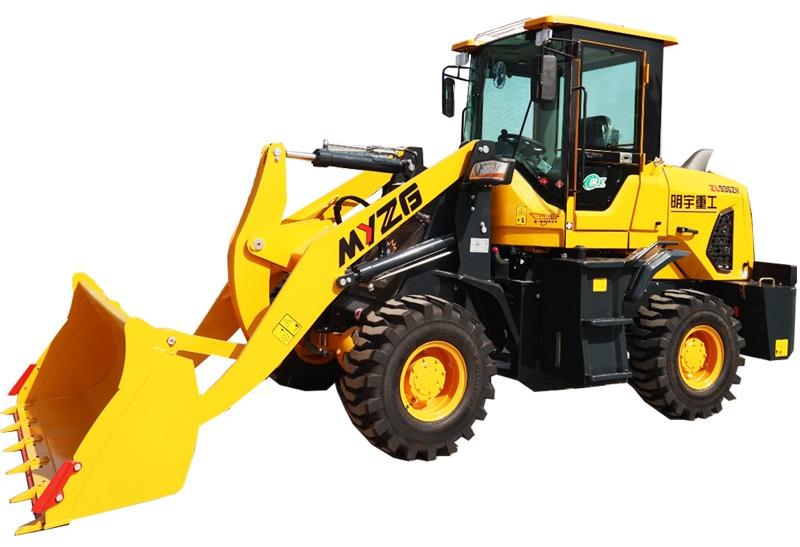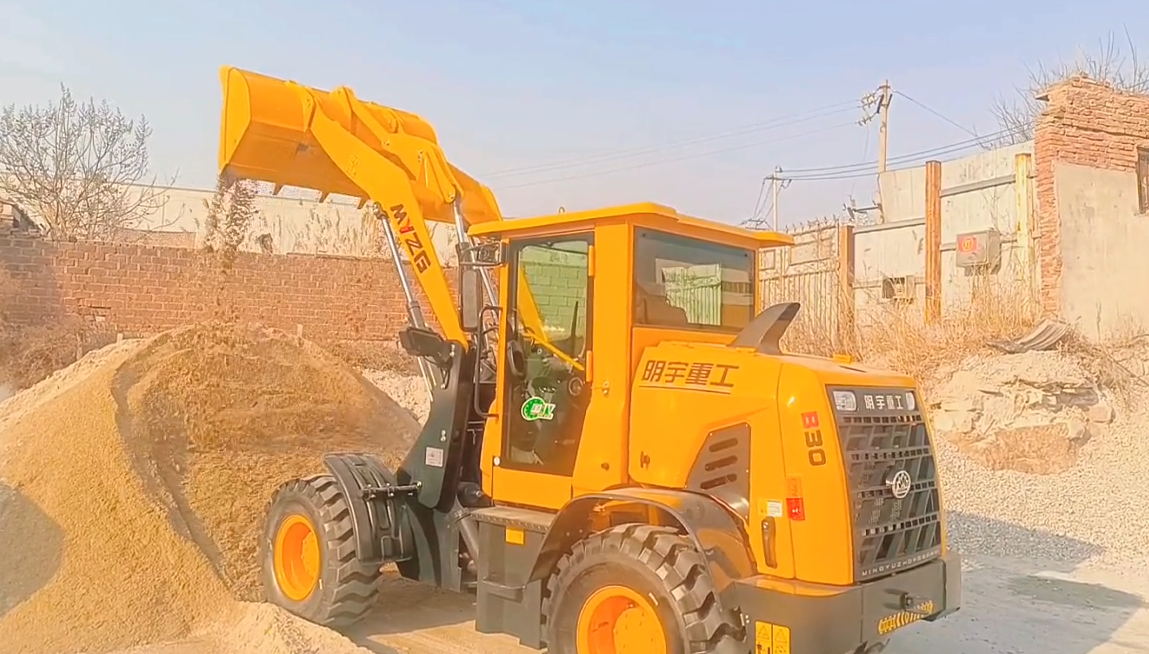A wheel loader is a versatile piece of heavy equipment used for material handling. It consists of a rigid frame, a powerful engine, and a large bucket mounted on a hinged arm. Wheel loaders are commonly used in construction, agriculture, mining, and other industries to move materials such as dirt, gravel, snow, and debris.

Understanding Your Needs
When choosing a wheel loader, it's important to consider your specific needs. Here are some key factors to keep in mind, along with an example using a product from MY Forklift:
-
Application: What tasks will you primarily use the wheel loader for?
- the Example: If you need a wheel loader for light-duty construction tasks like landscaping or small demolition projects, a smaller, more maneuverable model might be ideal.
-
Material Handling Requirements: What types of materials will you be handling, and how heavy are they?
- the Example: The MY Forklift 2-ton Wheel Loader is a diesel-powered loader with a rated operating capacity of 2,000 kg, making it suitable for handling lighter materials like loose soil, gravel, and mulch.
-
Work Environment: Where will you be operating the wheel loader (indoors, outdoors, or both)? What are the ground conditions like?
- the Example: The 2-ton Wheel Loader from MY Forklift is designed for outdoor use on relatively flat, stable terrain.
-
Budget: How much are you willing to spend on a wheel loader?
- the Example: The 2-ton Wheel Loader from MY Forklift is a budget-friendly option for those looking for a reliable, entry-level wheel loader.

Choosing Between Diesel and Electric Wheel Loaders
- Advantages: Powerful, reliable, and suitable for heavy-duty applications. The 2-ton Wheel Loader, for instance, can be used for various light-duty construction and landscaping tasks.
- Disadvantages: Higher operating costs due to fuel consumption and emissions.
- Advantages: Zero emissions, quieter operation, and lower maintenance costs.
- Disadvantages: Limited operating time due to battery life, and may not be suitable for heavy-duty applications.
Factors to Consider:
- Environmental Impact: If environmental concerns are a priority, an electric wheel loader may be a better choice.
- Operating Costs: Diesel wheel loaders can be more expensive to operate in the long run due to fuel costs and maintenance.
- Operating Conditions: Electric wheel loaders may not be suitable for harsh environments or demanding applications.
Selecting the Right Size Wheel Loader
Wheel loaders come in various sizes, from small compact models to large heavy-duty machines. The size you choose will depend on your specific needs.
- Small Wheel Loaders: Ideal for light-duty applications, such as landscaping and material handling in confined spaces.
- Medium Wheel Loaders: Suitable for a wide range of applications, including construction, agriculture, and material handling.
- Large Wheel Loaders: Designed for heavy-duty applications, such as mining and large-scale construction projects.
Factors to Consider:
- Lift Capacity: The maximum weight the wheel loader can lift.
- Bucket Capacity: The volume of material the bucket can hold.
- Engine Power: The horsepower of the engine determines the wheel loader's performance.
Additional Considerations
- Attachment Options: Consider the types of attachments you may need, such as buckets, forks, and grapples.
- Safety Features: Look for wheel loaders with safety features like operator cabs, rollover protection structures (ROPS), and automatic emergency stop systems.
- Dealer Support: Choose a reputable dealer that offers quality service and support.
- Warranty: A good warranty can provide peace of mind and protect your investment.
Choosing the right wheel loader requires careful consideration of your specific needs. By understanding the factors discussed in this article, you can make an informed decision that will help you improve productivity and efficiency.
Remember to consult with a wheel loader expert to discuss your specific needs and get personalized advice.
Post time:Nov.29.2024
